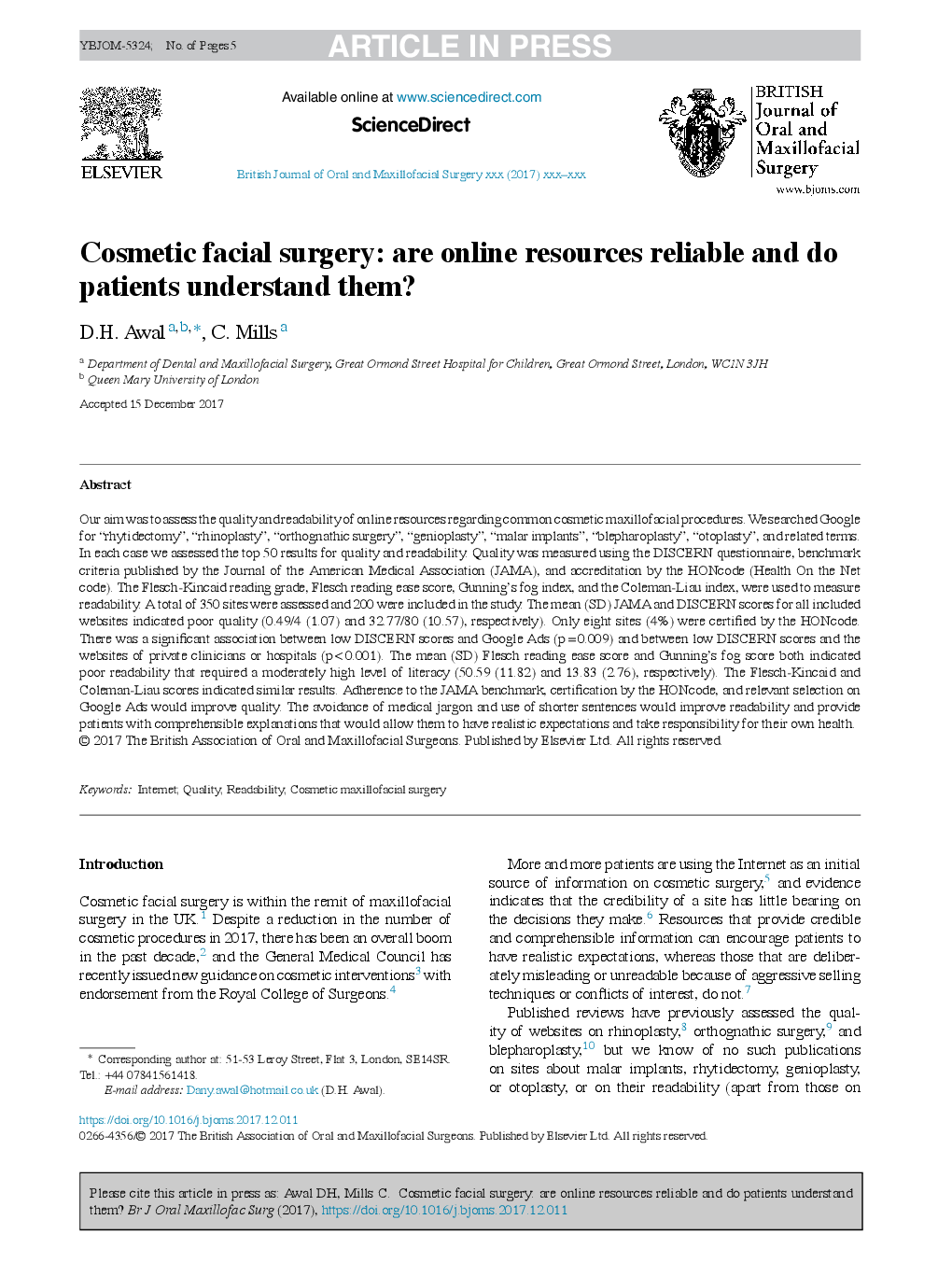ترجمه فارسی عنوان مقاله
جراحی زیبایی صورت: منابع آنلاین قابل اعتماد هستند و بیماران آنها را درک می کنند؟
عنوان انگلیسی
Cosmetic facial surgery: are online resources reliable and do patients understand them?
| کد مقاله | سال انتشار | تعداد صفحات مقاله انگلیسی |
|---|---|---|
| 129719 | 2018 | 5 صفحه PDF |
منبع

Publisher : Elsevier - Science Direct (الزویر - ساینس دایرکت)
Journal : British Journal of Oral and Maxillofacial Surgery, Volume 56, Issue 2, February 2018, Pages 124-128
ترجمه کلمات کلیدی
اینترنت، کیفیت، خوانایی، جراحی زیبایی بینی
کلمات کلیدی انگلیسی
Internet; Quality; Readability; Cosmetic maxillofacial surgery;

